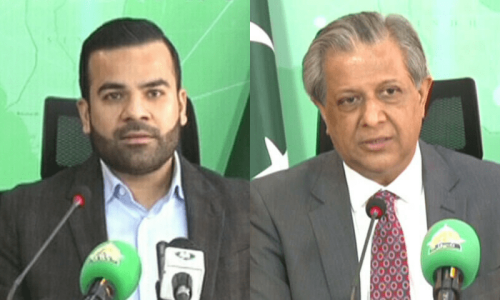Amid swirling speculation about a potential 27th Constitutional Amendment, Federal Law Minister Azam Nazeer Tarar on Monday dismissed any immediate government plans for such legislation. Tarar emphasised that the government was not considering a constitutional amendment beyond the recently passed 26th Amendment, which revised the appointment process for Supreme Court judges and the Chief Justice of Pakistan.
“There is no chance of bringing such a constitutional amendment,” Tarar told reporters outside a Parliament House meeting of the Parliamentarians for Global Action, urging media outlets to refrain from spreading baseless speculations.
However, in a separate conversation with Geo News, Prime Minister’s Adviser on Law, Barrister Aqeel Malik, hinted that legislative adjustments might still be on the table. He did not clarify if this would involve an amendment to the constitution or an ordinary bill but remarked that any move would prioritise consensus, dispelling any notion of unilateral action.
Reports have emerged suggesting that a bill amending the Supreme Court Practice and Procedure Act may be tabled soon, potentially stirring further debate within the legislative chambers. Yet, ruling coalition partner Pakistan Peoples Party (PPP) and opposition figures are staunchly opposing any such move, pledging to resist with nationwide protests if necessary.
PPP leader Nabeel Gabol voiced frustration over absent ministers in the National Assembly, noting that a crucial bill could be presented by week’s end. Sources within the PPP indicated the expected introduction of the Practice and Procedure Act Amendment Bill, though the PPP and other stakeholders remain opposed.
Echoing the sentiment, JUI-F chief Maulana Fazlur Rehman vowed that his party would prevent any clauses previously rejected under the 26th Amendment from re-emerging in new legislation. Meanwhile, PTI leader Asad Qaiser warned that the opposition would mobilise public support to block any 27th Amendment attempt, cautioning the government against pursuing contentious legislative changes without broad-based agreement.









